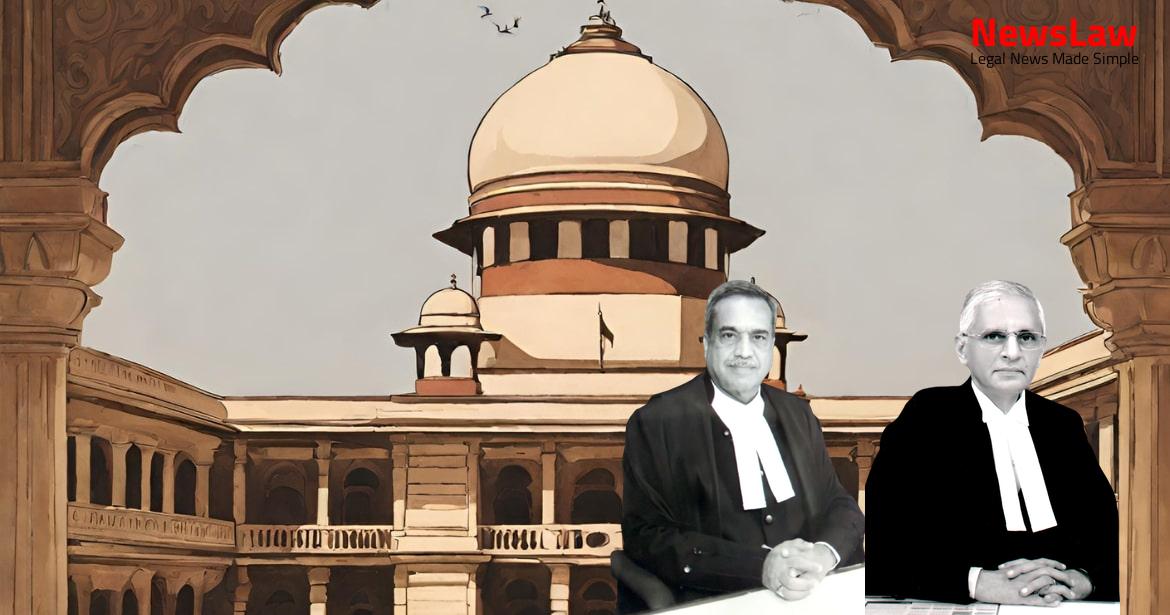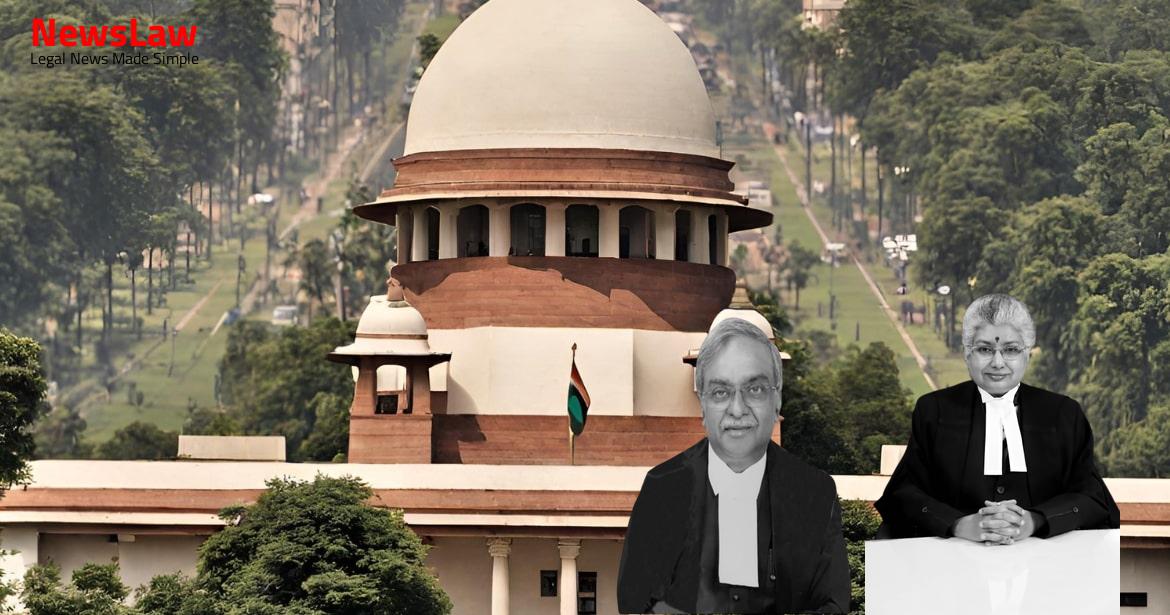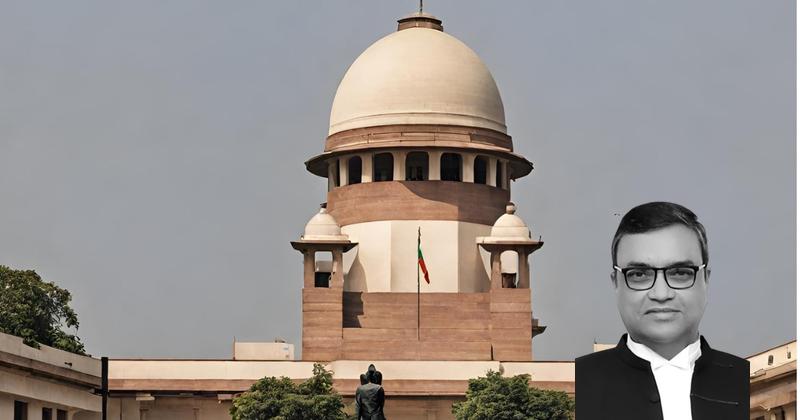In a recent legal case concerning compassionate appointments, the Division Bench of the High Court delved into the interpretation of Rule 5, specifically focusing on the term ‘suitable post’. The court’s analysis of the rules governing compassionate appointments sheds light on how eligibility is assessed and highlights the importance of considering educational qualifications in determining a suitable post for appointment. This blog post explores the nuances of the court’s legal analysis in this case.
Facts
- The Division Bench of the High Court set aside the order passed by the Single Judge and allowed the appeal.
- The Division Bench directed the appellants to consider the respondent for appointment on compassionate grounds in Grade-III service.
- The term ‘suitable’ in Rule 5 pertains to the suitability of the person seeking appointment, not the post held by the deceased government servant.
- Suitability of the aspirant is to be assessed based on their educational qualifications and other eligibilities.
- The Single Judge had dismissed the writ petition stating that as the deceased employee was a Class-IV employee, appointment could only be on a Class-IV post.
- The respondent in this case holds qualifications making her eligible for appointment on a Grade-III post.
- Deceased employee was serving as a Messenger in Police Radio Department of Uttar Pradesh at the time of his death.
- Widow of the deceased employee applied for appointment on compassionate grounds as an Assistant Operator, but was rejected due to not meeting eligibility criteria.
- The widow then filed a writ petition seeking appointment as a Workshop Hand under the Dying-In-Harness Rules 1974.
- Her application for the Workshop Hand position was rejected after failing a physical fitness test in 2018.
- Subsequently, she applied for the same position again, but was offered a lower-ranking position as a Messenger in the Radio Department.
Also Read: Judicial Review of Delayed Writ Petition
Arguments
- Compassionate appointments are exempt from normal recruitment procedures.
- No bar for appointing a dependent at a higher post than the deceased.
- Rule 5 of Rules 1974 allows for suitable employment in government service even in relaxation of normal recruitment rules.
- Hyper-technical approach should be avoided in compassionate appointment cases.
- Appellant prayed for appointment on suitable post based on qualification.
- Appellant emphasizing on the misinterpretation by the Division Bench of the High Court regarding Rule 5 of Rules 1974.
- The term ‘suitable post’ in Rule 5 should be linked to the post held by the deceased employee.
- Candidate’s educational qualification should be considered for determining a suitable post.
- Failure to pass a physical test does not make the candidate ineligible for all posts, alternative posts within Grade-III should be considered.
- Appellant sought appointment on compassionate ground due to sudden death of deceased.
- Appellant’s offer of Messenger post was refused by the respondent.
- Division Bench interpretation of ‘suitable post’ under Rule 5 was contested by the appellant.
Also Read: Interpretation of Statutory Limitation under Section 263(2)
Analysis
- The Division Bench of the High Court interpreted Rule 5 of the Rules 1974 to mean any post suitable to the qualification of the candidate, contrary to the purpose of compassionate appointments.
- Compassionate appointments are meant to relieve the family from financial destitution and help them overcome emergencies.
- The appointment on compassionate grounds is a concession, not a right, and must be in the lowest posts of Classes III and IV to achieve its objective.
- Equal opportunity for government vacancies is mandated under Articles 14 and 16 of the Constitution.
- The widow of the deceased government servant applied for various posts like Assistant Operator and Workshop Hand, but was not considered or failed to meet eligibility criteria.
- Compassionate appointments are granted based on humanitarian grounds to provide a source of livelihood for the bereaved family.
- The objective of compassionate appointments is to help the family overcome the sudden crisis of losing the breadwinner.
- Appointments in public services should be made strictly on the basis of open invitation of applications and merit.
- Compassionate appointment is an exception to the general rule of appointment in public services, in favor of dependents of a deceased employee in penury.
- Appointment on compassionate grounds is not a source of recruitment but a means to help the family overcome a financial crisis.
- Appointment on compassionate ground can be made only on fulfilling the norms laid down by the State’s policy and satisfaction of eligibility criteria.
- The appointment should be based on the norms prevailing at the time of consideration of the application.
- Compassionate appointment is an exception to the general rule and no aspirant has a right to it.
- The respondent refused the appointment on a suitable post
- The Division Bench misinterpreted Rule 5 of the Dying-In-Harness Rules 1974
- They held that a ‘suitable post’ means any post suitable to the candidate’s qualifications
- This interpretation would defeat the purpose of appointment on compassionate grounds
- The appeal succeeds and the impugned judgment is quashed
- The appellants were justified in offering the appointment for the post of Messenger
Also Read: Legal Analysis on Conviction Based on Sole Testimony of Prosecutrix
Decision
- The writ petition preferred by the respondent before the learned Single Judge has been dismissed
- The order passed by the learned Single Judge on 31.07.2018 dismissing the writ has been restored
Case Title: THE STATE OF UTTAR PRADESH Vs. PREMLATA (2021 INSC 619)
Case Number: C.A. No.-006003-006003 / 2021



